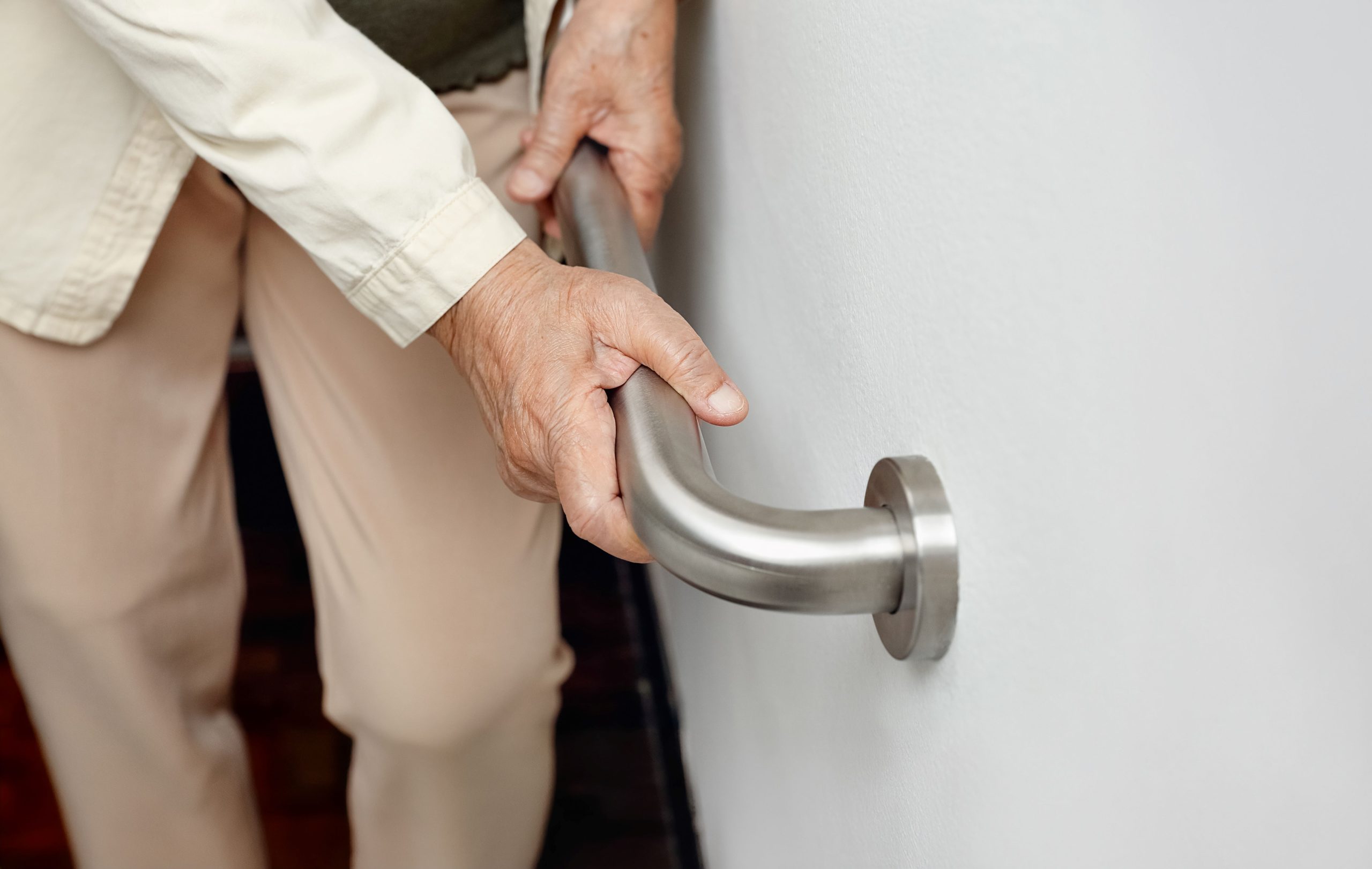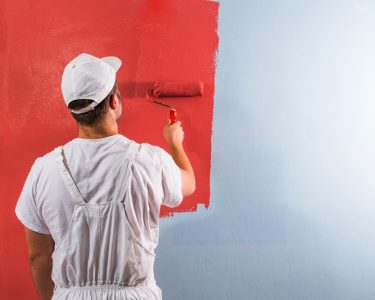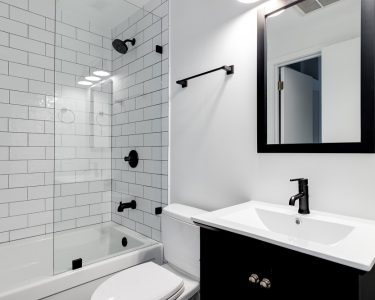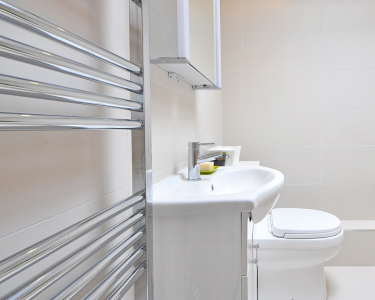Creating a safe and comfortable home environment is essential for visually impaired individuals, especially seniors living with chronic conditions. In New Jersey, particularly in areas like Edison and Clark, families can take various steps to ensure that their loved ones receive the best possible in-home care. By implementing home modifications tailored to the needs of those with vision impairments, it’s possible to promote independence while minimizing risks and hazards. This blog explores key home modifications, their importance in chronic conditions home care, and how professional home care services can support families in Edison and Clark.
Why Home Modifications Are Crucial for Visually Impaired Individuals
For individuals with visual impairments, navigating everyday spaces can present challenges. Simple tasks like moving around the home, cooking, or accessing frequently used items may become difficult or even dangerous without proper modifications. Home care services in New Jersey often recommend specific changes to reduce these risks, thereby enhancing the quality of life and allowing individuals to maintain independence.
When combined with chronic conditions home care in NJ, these modifications become even more vital, as seniors with additional health concerns (e.g., diabetes, arthritis, or heart disease) require not just support but a safe and adaptable environment.
Essential Home Modifications for the Visually Impaired
- Lighting Adjustments
Proper lighting is one of the most key factors for visually impaired individuals. Installing bright, adjustable lighting fixtures in key areas such as hallways, staircases, bathrooms, and kitchens can significantly reduce accidents. Motion-sensor lighting systems can be particularly beneficial, automatically illuminating spaces when someone enters a room, reducing the risk of falls.
Additionally, using task lighting in areas where specific activities occur, like reading or cooking, ensures that these spaces are well-lit and accessible. These adjustments are essential not only for improving visibility but also for helping those with chronic conditions maintain their routines safely.
- High-Contrast Design Elements
Incorporating high-contrast color schemes can help visually impaired individuals differentiate between walls, furniture, and flooring. This modification is particularly helpful in distinguishing door frames, light switches, and stair edges. In areas like Edison and Clark, where homes may vary in style, this approach can be tailored to fit both modern and traditional interiors.
For example, painting door frames in bold colors or using brightly colored tape on the edges of stairs can make navigation more intuitive. These visual cues are vital for those receiving chronic conditions home care, as they can help prevent accidents and enable individuals to move around their homes with greater confidence.
- Tactile Flooring and Markers
Introducing tactile elements like textured flooring or raised markers on steps and thresholds is another effective way to support visually impaired individuals. This is especially useful in high-traffic areas like hallways, entrances, and kitchens. Textured surfaces can alert individuals to changes in elevation or transitions between different rooms, making it easier for them to move about safely.
Raised indicators or Braille labels near doorways can also be used to help identify different rooms, further enhancing safety and independence. By integrating these features, chronic conditions home care providers in Edison and Clark can ensure that homes are as accessible and secure as possible.
- Decluttering and Organizing Spaces
A clutter-free environment is crucial for reducing hazards in the homes of visually impaired individuals. Caregivers in New Jersey often recommend reorganizing and simplifying living spaces to minimize the risk of tripping over loose items. Keeping frequently used objects in specific, easily accessible locations allows individuals to navigate their homes more comfortably.
For families receiving home care services in NJ, professional caregivers can assist with maintaining organized and tidy spaces, ensuring that seniors and those with disabilities have a safe and supportive environment.
- Smart Home Technology Integration
Smart home devices are increasingly becoming part of comprehensive home care solutions in New Jersey. For visually impaired individuals, voice-activated systems that control lighting, temperature, and security provide an extra layer of convenience and safety. With just a voice command, individuals can adjust their environment, access assistance, or alert caregivers in case of emergencies.
These technologies are particularly beneficial for those with chronic conditions who may also face mobility challenges. Chronic conditions home care providers in Edison and Clark can help families integrate these smart solutions into their homes, ensuring that visually impaired individuals have the tools they need to manage daily tasks independently.
The Role of Home Care Services in New Jersey
Home care services in New Jersey play an integral role in ensuring that visually impaired individuals receive the support they need. In Edison, Clark, and surrounding New Jersey areas, these services go beyond just providing physical assistance. Professional caregivers are trained to recognize the specific needs of individuals with visual impairments and chronic conditions, enabling them to implement and maintain these modifications effectively.
- Personalized Care Plans: Each client’s needs are unique, and a tailored approach is necessary to create an environment that works for them. Home care providers assess the home layout, individual preferences, and health conditions to develop a personalized care plan that integrates these modifications seamlessly.
- Ongoing Support: For families managing chronic conditions, home care professionals offer ongoing assistance, including daily living support and routine maintenance of home modifications. They ensure that the environment remains safe and organized, and they adjust care plans as the needs of the individual evolve.
- Promoting Independence: The goal of integrating home modifications and home care services is to foster independence for visually impaired individuals. Whether it’s helping with tasks, providing mobility support, or maintaining a safe environment, these services enable individuals to live comfortably and confidently in their homes.
Finding the Right Home Care Services in Edison and Clark
If you’re looking for home care services in Edison, Clark, or other parts of New Jersey, it’s essential to find a provider that understands the specific needs of visually impaired individuals. The right provider will work with you to assess and implement the necessary home modifications, ensuring your loved one’s safety and comfort.
Chronic conditions home care providers in New Jersey should offer comprehensive support, including assistance with daily activities, personal care, and specialized services for those with vision impairments. By partnering with a trusted and experienced caregiver, families can create a safe, comfortable, and accessible environment for their loved ones.
Conclusion: Enhancing Independence and Quality of Life Through Home Modifications
Home modifications are vital for enhancing the safety, independence, and quality of life for visually impaired individuals, especially those with chronic conditions. In areas like Edison and Clark, New Jersey, families have access to professional home care services that can support these modifications and provide ongoing assistance. By combining these modifications with expert care, families can ensure their loved ones live safely and comfortably in their homes, enjoying the best possible quality of life.
Resources:
- Home Modifications for Visually Impaired Seniors – Meet Caregivers
- How to Create a Safe Home for the Visually Impaired and Totally Blind – Eye Care Institute





